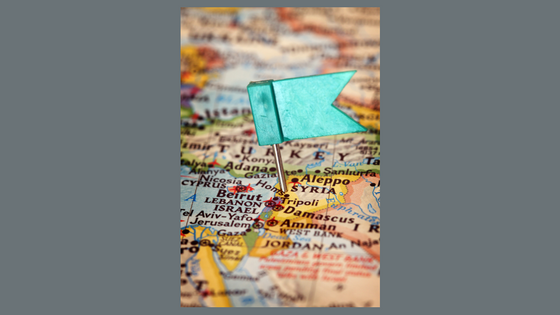Democracy, Libraries, and the Human Spirit: We Learn from Syria

A recent story sparked my interest in the reasons we read and the psychological, emotional, and social effects of being surrounded by books and reading. You may have seen the story as it made its way through social media circles. It’s about a secret library in a war torn suburb of Damascus. Tucked away in a basement lined with shelves and furnished with two couches and a desk, volunteers have amassed more than 14,000 books of all subjects. For 14-year-old Amjad, who lives next door, visits to the library are a daily occurrence. He takes such good care of the books that visitors have dubbed him, “deputy librarian.” 1
As most of the world helplessly sits by reading headlines of the war in Syria, those who have read the words of the late Omar Abu Anas have been inspired by his brave heart and reminded of the resilient human spirit. “Truly I swear the library holds a special place in all our hearts,” he said. “And every time there’s shelling near the library we pray for it,”2 Anas, a former engineering student, was killed in early August on the front lines during an attack by pro-Assad forces as he was defending his home town.
Syrians, driven from their homes, families, and country arrive to a life of uncertainty as refugees to host countries in foreign lands. Civilians who have not left the country contend with pain and suffering and the difficulties of trying to continue living in war torn cities without safe homes, shelter, and little food and water. But among the rubble, a tiny spark of humanity ignited and Anas’ words reflect a human spirit yearning to be free and sovereign over oneself. “Books motivate us to keep on going,” he said. “We read how in the past everyone turned their backs on a particular nation, yet they still made it. So we can be like that too. They help us plan for life once Assad is gone. We can only do that through the books we are reading. We want to be a free nation. And hopefully, by reading, we can achieve this.”3
In a free, democratic society, we are afforded basic human rights (they are not privileges since they cannot be taken away). In the United States, the guarantee of our fundamental liberties is outlined in the first ten amendments to the U.S. Constitution, these became known as the Bill of Rights. Referred to as inalienable rights, the amendment that pertains to libraries is the first –Congress shall make no law respecting an establishment of religion, or prohibiting the free exercise thereof; or abridging the freedom of speech, or of the press; or the right of the people peaceably to assemble, and to petition the government for a redress of grievances. This country fought, men and women perished, lives were lost to gain the First Amendment so that we could have the freedom of speech which extends to thought and expression. And through that expression, democracy works not only when citizens participate in government, but to work well, a democracy requires educated citizens who are well-informed and can participate intelligently.
Ray Bradbury spoke of the link to reading and democracy when he said, “If you know how to read, you have a complete education about life, then you know how to vote within a democracy. But if you don’t know how to read, you don’t know how to decide. That’s the great thing about our country — we’re a democracy of readers, and we should keep it that way.”4
As someone who loves libraries and understands why they are important not only to us as individuals, but collectively—to our communities and country. I urge all people to use their public libraries and to defend and protect their public libraries as if their lives depended on it — just as Omar Abu Anas did. In the words of Bill Moyers, “When a library is open, no matter its size or shape, democracy is open, too.”5 Libraries provide hope even in the darkest corners of the world.
References:
[1] Thompson, Mike. Syria’s secret library. July 28, 2016.
[2] Ibid.
[3] Ibid.
[4] Popova, By Maria. “Ray Bradbury on Doing What You Love and Reading as a Prerequisite for Democracy.” Brain Pickings. Maria Popova, 17 Sept. 2015. Web. 9 Sept. 2016.
[5] Moyers, Bill. Foreword in The Public Library: A Photographic Essay by Robert Dawson New York: Princeton Architectural Press 2014.
For more information:
Public Libraries and Intellectual Freedom
Libraries and Democracy. ERIC Digest
Tags: Omar Abu Anas, Reading and Democracy, Secret Library, Syria












